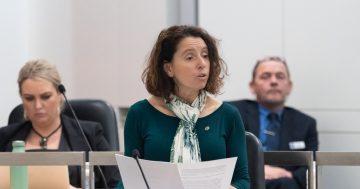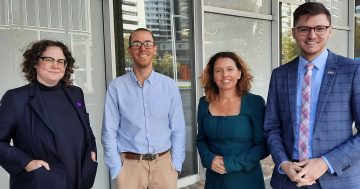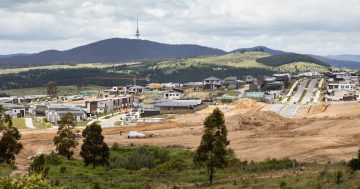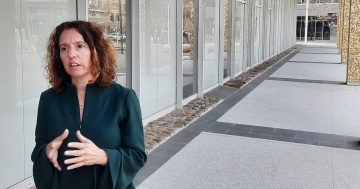
ACT Heritage Minister Rebecca Vassarotti disbanded the entire ACT Heritage Council late last year. Photo: Region.
An almost entirely redacted independent report into the “systemic issues” between the sacked Heritage Council and ACT Heritage has been released under Freedom of Information legislation.
The context of those issues is no clearer, with only one section of the report not fully blacked out.
Heritage Minister Rebecca Vassarotti told the Legislative Assembly on Wednesday (22 March) this was to protect the identity of those involved.
“I have worked to ensure that the privacy, safety and welfare of the members of the Heritage Council and the current ACT Heritage officials who contributed to the review is protected,” she said.
Ms Vassarotti acknowledged the report “painted a concerning picture” of how structural issues had impacted the relationship between the Heritage Council and ACT Heritage.
“I was saddened and disappointed by the findings,” she said.
But Shadow Heritage Minister Nicole Lawder argued that all the redacted report did was create more questions about what exactly went on.
“[This] heavily redacted document is all but useless,” she said.
“It creates an understanding that there is something to hide … you’re creating more and more questions, more and more unrest, and in the meantime, people in the heritage community are unsure what’s going on.”
The report stated the strained Heritage Council relationships, together with “inefficient” ACT Heritage systems, “present an imminent risk to ACT Heritage sites”.
The only item that wasn’t redacted in its entirety was around the point that ACT Heritage’s resources did not match the “increasing demand or complexity” of the work required.
The report noted ACT Heritage’s workload had increased “substantially” without a corresponding increase in budget and resources.
The Advice and Approvals team had the most direct contact with the Heritage Council, providing “roughly 90 per cent” of all advice and approvals under delegation.
Heritage Council advice issued had increased by 70 per cent from 2014 to 2022, while staffing had only increased by 45 per cent over the same period.
“The Heritage Unit [ACT Heritage] reports that the proportion of major and complex submissions in this work program is greater than ever before,” the report stated.
“Advice for these major projects typically takes Heritage Unit staff four to six weeks to prepare. At times it can use up to 40 per cent of team resources.”
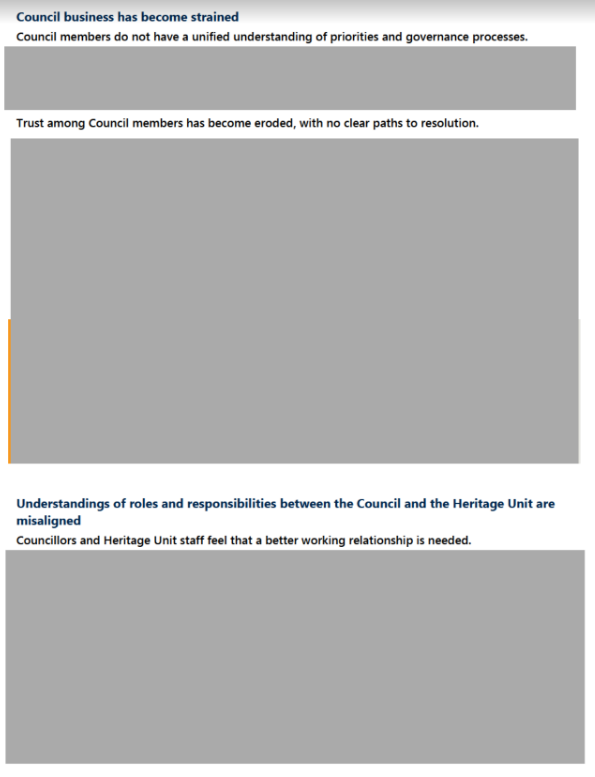
One of the redacted pages of the review into the ACT Heritage Council. Photo: Screenshot.
The increased workload without an increase in budget and resources was reflected in a blowout of Heritage Council response times, with only 64 per cent of referred development applications (DAs) in 2021-22 issued on time and in accordance with statutory requirements.
“Private owners are disproportionately affected by Heritage Council advice delays, as most private submissions do not have statutory timeframes,” the report noted.
“These response times have worsened in the past year. Many owners wait over 60 working days for advice, and some have been waiting 80 to 120 working days.”
It was found the Registration team also had a “significant workload”, with both ACT Heritage and Heritage Council staff expressing dissatisfaction that only 35 to 40 per cent of the priority list of heritage site nominations were processed each year.
It also identified that Heritage Council business had become strained as members did not have a “unified understanding” of priorities and governance processes, and trust had become “eroded” with “no clear path” to resolution.
The understanding of roles and responsibilities between the Heritage Council and ACT Heritage had become “misaligned”, with Council members feeling they should have a more strategic and directive role which they felt wasn’t being recognised or enabled.
Frustration was identified on both sides regarding how to better work together, and how “unprofessional behaviour” had created stress in the workplace environment.
The report also stated the Heritage Council lacked a unified direction and understanding of its strategic outlook and processes, with business processes triaging tasks and delegating workflow needing clarification.
The Heritage Council and ACT Heritage also did not have a “common understanding” of how they should work together, with dissatisfaction and “misalignment of expectations” between some members regarding each other’s work processes.
Inefficient business systems regarding processes and internal workflow put stress on staff, and a “digital transformation” was identified to help reduce current stressors.
Ms Vassarotti said recruitment for an interim Heritage Council was underway, with an independent consultant engaged to review the heritage framework.
Its first report is expected in June.
Workforce planning is underway by the ACT Government to identify resource gaps in the heritage area.












